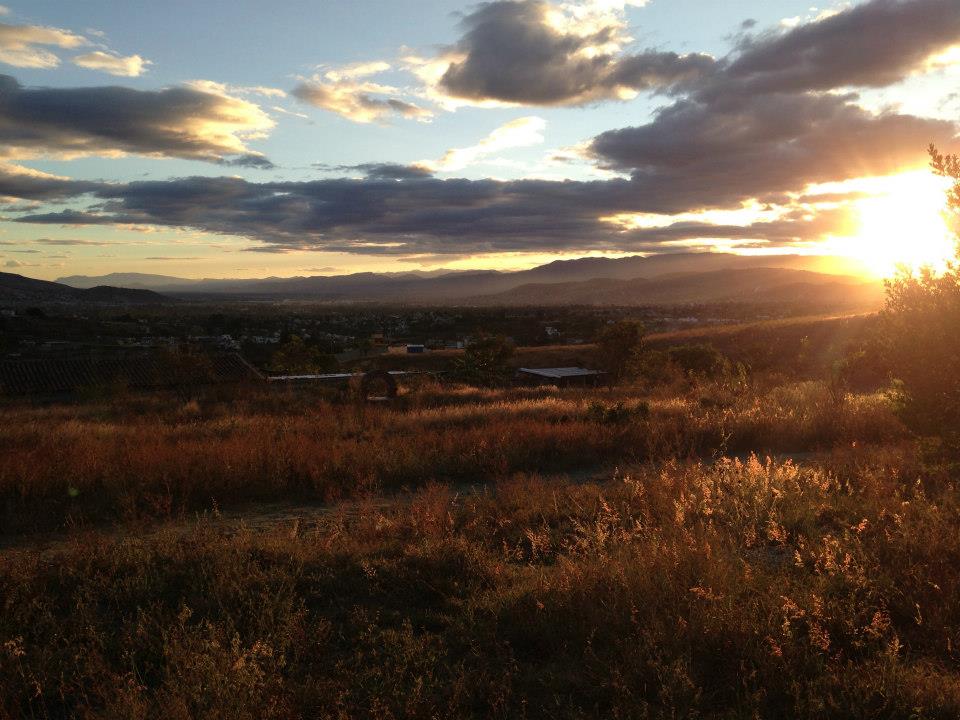Nineteenth Sunday in Ordinary Time (Year B)
Jean Walsh
August 9, 2015
1 Kings 19:4-8; Psalm 34:2-3, 4-5, 6-7, 8-9; Ephesians 4:30-5:2; John 6:41-51
Jean Walsh, a former Maryknoll lay missioner who served in Mexico, wrote the following reflection which was published in A Maryknoll Liturgical Year: Reflections on the Readings for Year B, available from Orbis Books.
Two of today’s readings talk about the desert. In the first reading the prophet Elijah is wandering in the desert. He takes refuge under a tree, and totally in despair he falls asleep. In the Gospel Jesus takes about the people’s ancestors eating manna in the desert. Jesus proclaims that he is the bread of life. He is what truly sustains us in our journey.
My own journey took me to Oaxaca, where I lived with my family and served as a Maryknoll lay missioner. Oaxaca, located in southern Mexico, is a place where the image of desert is very real. This is of particular concern, because it is a farming area. Folks depend on their land for sustenance. Throughout the region there has been tremendous deforestation by large lumber companies, resulting in erosion of soil during the rainy season. In fact, an environmental commission of the United Nations says that Oaxaca has one of the highest rates of soil erosion in the world.
In addition, over the years many farmers were encouraged to adopt chemical-intensive farming methods. After they used these techniques for a few seasons the soil became depleted and required increased amounts of chemicals. Given the drop in production and the high cost of chemicals farmers were forced to leave their lands because they no longer produced food to feed their families. It created a vicious cycle. When the men leave the community to migrate to the cities and the United States looking for work to support their families, the land is abandoned. That contributes to erosion and speeds up the process of the land becoming sandy, like that of a desert.
In our reading Elijah was woken by an angel, not once, but twice. The angel told Elijah to eat and drink so he would have enough strength to walk to God’s mountain. During my time in Oaxaca I saw many “angels” issuing that “wake up” call as well. The angels took the form of small farmers who were organizing in their community to help make sure that people would have enough to eat and drink. I worked with an organization of indigenous farmers who taught their neighbors how to return to their traditional ways of farming rather than relying on expensive pesticides and chemical fertilizers. They started slowly, working in one community. Now they work with more than fifteen hundred small farmers in twelve communities. They teach folks how to make irrigation ditches to catch rain water, as well as help families start vegetable gardens. “Wake up,” they say. There is a better way. “God wants all of us to have life in abundance!”
Most of us love trees and to me it is no surprise that Elijah takes refuge under a tree. Imagine being in a desert and falling asleep under a tree. It would provide welcome relief. In Oaxaca, trees have been central to the work of these farmers to improve the quality of life in their communities and heal the land. Every year they plant two hundred thousand trees. Since they started they have planted over one million trees in the region!
I’d like to share one story that highlights these farmers’ commitment to help the earth and those who live on it. Once I traveled with them to one of the more remote villages where they work. It was perched very high on a mountain where the dirt was so bad it looked like sand. And yet they had done unbelievable things. Many families had planted gardens. We walked further and further up the mountainside. Then we turned a bend and in front of me was a sight that made my mouth drop open — they had planted eight thousand tiny sapling trees on the mountainside. For their grandchildren, they told me.
I believe that these people in Oaxaca are acting as angels for all of us. They are trying to wake all of us up to live in ways that are more sustainable, more integral to nature around us. They beckon us to pay attention to where the desert is growing, whether that is in our own lives or in the environment around us. They remind us that we truly need that balanced approach to continue our journey to God.
These remarkable farmers could never separate their faith from their work to improve their communities. They recognized Jesus as the bread of life. In turn they did their best to ensure that those around them had the bread and sustenance they needed in their own lives. May we have the courage and wisdom to follow their example.
Photo of Oaxaca by Judy Coode

